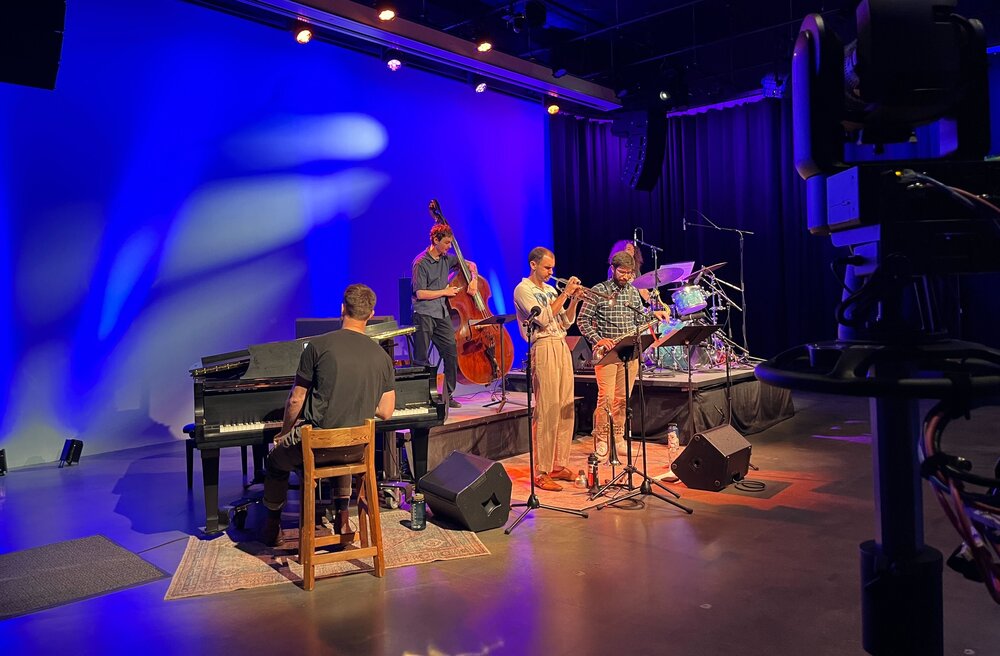KUVO Jazz station
Performances
Support the Music
Your donation supports the programs on-air, online and in-person that you count on. Listener support fuels KUVO JAZZ and keeps the music going.

Thank you to those who supported KUVO JAZZ on Colorado Gives Day!
Due to high winds and fire danger, transmitters are operating at reduced power and reception may be affected through the weekend. Thank you for your understanding and support! You can listen online and on the KUVO app.
For our Summit County Listeners: The KVJZ 91.7FM transmitter site on Bald Mountain experienced a catastrophic power line failure. Because of the high elevation and winter conditions, repairs won’t be possible until next summer. Stream KUVO JAZZ on our website, the app, or your smart speaker.
Performances
Support the Music
Your donation supports the programs on-air, online and in-person that you count on. Listener support fuels KUVO JAZZ and keeps the music going.
